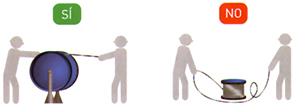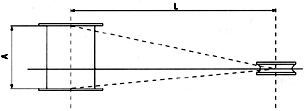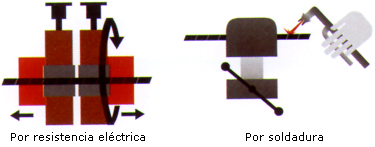Rope wood shaft hanger with two steel bucket supports
(550 x 245 mm)
Use: building maintenance, glass cleaning, etc.
Izajes y Transmisiones S.A. has developed ENCAN®, a brand comprised of personal protection products to prevent falling from heights.
The new line of products offers harnesses, fall arrest equipment and positioning lines, sliding fall arrest devices, lifelines and different accessories to supplement and make system assembly less difficult.
ENCAN® offers a wide range of equipment for all activities and work conducted at heights.
All ENCAN® products strictly comply with the applicable IRAM standards. We have our own world class laboratory in our plant, including a fall/training tower.
Since we know the market and the companies’ needs, we understand that our customers require excellent product quality in addition to quality and speed of service; this is our goal.
ENCAN® fall protection, a protecting brand.
Rope wood shaft hanger with two steel bucket supports
(550 x 245 mm)
Use: building maintenance, glass cleaning, etc.
The coil should be breaked while unwinding so that the wire rope comes out with a certain pressure and does not turn on its axis. This prevents bumps and kinks. If the coil is not equipped with brakes, then an operator should stop it..

When the wire rope is carried from a full coil to an empty one or to a machine drum, this should be done from the upper or lower part of both, but never from the upper part of one coil and the lower part of the other, or vice versa.

The wire rope winding on the machine drum must be carried out correctly so that there are no spires overlapping and cross-linking, which would crush and distort the cords. The following figures represent the four cases that could effectively take place:
We do not recommend winding the wire around the drum in several layers, but if so, this technique is applied for the first layer of winding.

The deflection angle is that formed by the wire from the first fixed pulley on the edge of the winding drum. It should not exceed 1º 30'.

Cutting with shears or scissors. Before cutting, wires are to be tied together on both sides of the cutting area. The number of ties, the width and the distance between them depend on the wire diameter (see table). It is key to avoid longitudinal tilts among the different cord layers, since, in that case, those which have moved the least will bear the greatest part of the load, and there is the risk of breakage.

| Tie characteristics | ||||
| Wire rope diameter | No. of ties on each side of the cut |
Tie length |
Distance between ties |
Wire diameter rec. iron piece to be used (mm) |
| Up to 12 | 3 | 12 | 15 | 0,5 to 0,8 |
| 13 to 20 | 3 | 25 | 40 | 1 to 1,5 |
| 21 to 30 | 4 | 40 | 50 | 1,2 to 2,2 |
| 31 to 40 | 4 | 50 | 50 | 1,8 to 3 |
| 41 to 50 | 4 | 75 | 50 | 2,2 to 3,2 |
To cut antitwisting wire ropes, we recommend cutting by electric resistance or by welding.

For calibration, the measuring device must be properly used.
